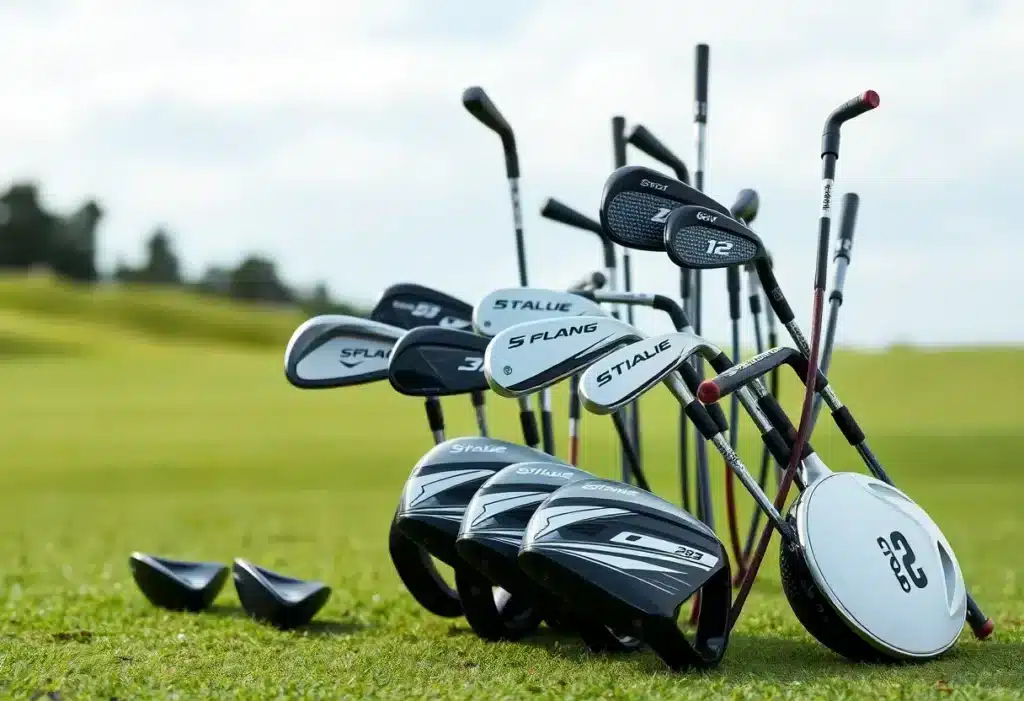Golf Club Comparison Guide: How to Choose Between Leading Brands
Choosing a golf club can be an overwhelming task. With numerous leading brands on the market, golfers often find themselves uncertain about which equipment will best enhance their performance. This Golf Club Comparison Guide aims to simplify this process by providing an informative overview of the leading brands, their specialties, and factors to consider when making a selection.
Understanding Key Factors in Golf Club Selection
Before diving into specific brands, it is crucial to understand the key factors that should influence your decision-making process. These include:
1. Skill Level
Your golfing proficiency—beginner, intermediate, or advanced—will significantly dictate the type of clubs you should consider. Beginners often benefit from more forgiving clubs, while advanced players may seek precision and control.
2. Club Type
Golf clubs are categorized into four main types: woods, irons, wedges, and putters. Each type serves a different purpose and should be matched to your playing style. For example, drivers are primarily for long-distance tee shots, while putters are used on the green to roll the ball into the hole.
3. Weight and Feel
The weight of a club can significantly affect your swing. Heavier clubs often offer more control, while lighter clubs can enhance swing speed. It’s essential to choose a club that matches your preference for weight and feel.
4. Material
Clubs are often made from various materials, including stainless steel, titanium, and carbon fiber. Higher-quality materials tend to be more durable and may improve performance.
Leading Golf Club Brands Overview
Now that we have established key considerations, let’s compare several leading golf club brands, focusing on their unique offerings and strengths.
1. Titleist
Titleist is a premier brand known for its high-performance golf clubs, particularly its drivers and irons. Their equipment is widely used on professional tours. Titleist clubs offer exceptional control and feel, suitable for serious golfers.
- Strengths: Precision engineering, premium materials, custom fitting options.
- Weaknesses: Generally higher price point compared to some competitors.
2. TaylorMade
TaylorMade is a pioneer in golf technology, especially known for its innovative drivers. The brand continuously pushes the envelope with new technologies and custom options.
- Strengths: Advanced aerodynamic designs, adjustability features, friendly for various skill levels.
- Weaknesses: Some users report a steeper learning curve with advanced features.
3. Callaway
Callaway is synonymous with forgiveness and distance. Their clubs, especially drivers and irons, are designed to be user-friendly. Durability and performance among a wide array of golfers make Callaway a household name.
- Strengths: Generous sweet spots, great for beginners and intermediate players.
- Weaknesses: More advanced players might find them less precise.
4. Ping
Ping is respected for its fitting philosophy and customer service. They emphasize custom fitting and have a loyal following among high-handicap and professional golfers alike.
- Strengths: Exceptional quality and performance, excellent fitting system.
- Weaknesses: Clubs might feel too specialized for occasional players.
5. Mizuno
Mizuno is regarded for its craftsmanship and performance in irons. Their clubs are designed for players who enjoy feedback and precision in their swings.
- Strengths: High-quality materials and craftsmanship, particularly praised for feel and feedback.
- Weaknesses: Less forgiving than some competitors; might not suit beginners.
Comparative Features by Brand
Different brands excel in various aspects of performance. Here is a comparison based on critical features:
1. Forgiveness
Forgiveness refers to how well a club performs even when the ball is not struck perfectly. Callaway and TaylorMade are exemplary in this category, often designed for higher forgiveness levels compared to Titleist and Mizuno, which appeal more to advanced players seeking precision.
2. Adjustability
TaylorMade stands out for its adjustable features, allowing golfers to tweak loft and lie angles. Callaway also offers adjustable options, making it easier for users to customize their clubs to fit their swing dynamics.
3. Specialty Clubs
While most companies offer a full range of clubs, some shine in specific categories. For example, Ping is praised for its putters, while Mizuno is celebrated for its irons. Brands may cater to different aspects of a golfer’s game.
Determining the Best Fit for You
After examining leading brands and their strengths, the next step is determining which club is best for your individual needs.
1. Test Before You Buy
Whenever possible, test clubs at local golf shops or through demo days at golf courses. Feel how the club performs before making a purchase decision.
2. Custom Fitting
Investing in a professional fitting session can lead to significant improvements in your game. Fitting can significantly impact your comfort and performance.
3. Seek Professional Advice
Consulting with a golf professional can provide personalized insights into which clubs may benefit your unique gameplay and style.
Final Thoughts
The choice of golf clubs is personal and should be tailored to your skill level, playing style, and preferences. This Golf Club Comparison Guide has provided you with essential insights into leading brands, the features that differentiate them, and advice on how to choose the best clubs for you. Each brand has its unique proposition; thus, invest your time into researching and testing options to uncover what will genuinely enhance your golfing experience.
Choose wisely, practice regularly, and enjoy the game.


